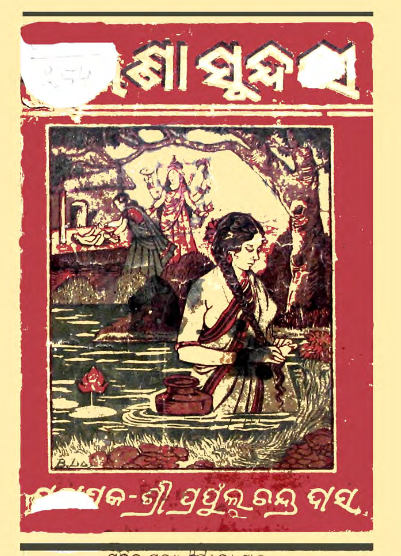Khulana Sundari, a remarkable collection of poetry by the celebrated Odia poet Bhikari Dhibar, first published in 1944, stands as a testament to the rich tradition of Odia literature and its ability to resonate with the human experience. Dhibar’s work is characterized by its emotive depth, intricate craftsmanship, and a profound connection to the cultural landscape of Odisha.
At the heart of Khulana Sundari lies an exploration of love, beauty, and the complexity of human emotions. Dhibar draws inspiration from the natural world, weaving evocative imagery that captivates readers and immerses them in the essence of his themes. The title, which translates to The Open Beauty, reflects the poet’s intent to celebrate the transformative power of love and the beauty inherent in both nature and human relationships.
Dhibar’s poetry addresses the duality of joy and sorrow—a central theme that runs throughout the collection. The poet skillfully captures moments of blissful love and tender connection, juxtaposed with the pain of separation and longing. Through his verses, readers are taken on a journey through the highs and lows of life, reflecting on their own experiences of love and loss.
One of the defining features of Khulana Sundari is Bhikari Dhibar’s exquisite use of imagery. His verses are rich with descriptions of the vibrant landscapes of Odisha, invoking the sights, sounds, and scents of the natural world. From the blooming flowers to the gentle rustling of leaves, each image serves to deepen the emotional resonance of the poems. Dhibar’s ability to paint vivid pictures with words allows readers to immerse themselves fully in the sensory experiences he conveys.
The poet’s craftsmanship is equally commendable. Dhibar employs various poetic forms and structures, displaying his versatility and mastery of language. His rhythmic patterns and melodic language create a musical quality in the poetry, making it not only a written work but also a performative experience. This musicality is particularly appealing, as it reflects the oral traditions of Odia poetry, allowing the verses to be shared and celebrated in communal settings.
Published in 1944, Khulana Sundari emerged during a transformative period in Odisha’s history. The backdrop of political change and cultural renaissance influenced Dhibar’s writing, as the poet sought to capture the essence of human emotions amidst the shifting tides of society. The collection serves as both a lyrical expression of personal experiences and a reflection of the collective consciousness of the time.
Moreover, Dhibar’s work is significant in advancing the Odia language and literature. His contributions to the literary landscape helped elevate poetry as a respected form of artistic expression within the Odia community, inspiring future generations of poets to explore themes of love, beauty, and emotion.
Books Info
| Books name | Khulana Sundari/ଖୁଲଣା ସୁନ୍ଦରୀ |
| Author | Bhikari Dhibar |
| No Of pages | 158 |
| Publisher | Sri Praphula Chandra Das |
| Publication | 1944 |
| Printed At | NA |
| Distributor | NA |

